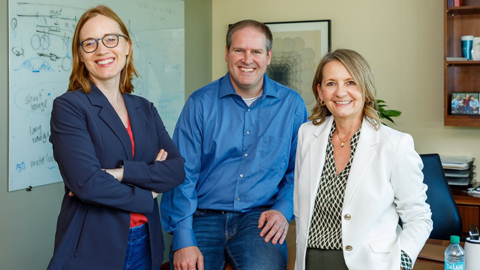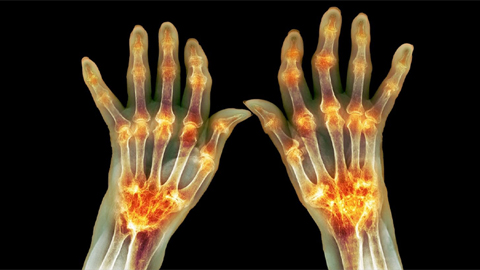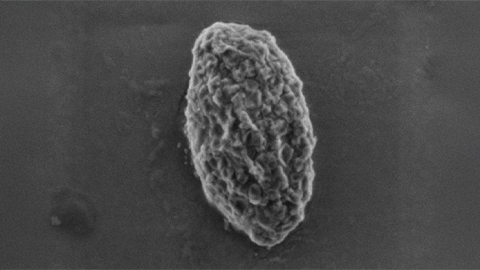Institute launches a new AI initiative to power biological research
With artificial intelligence (AI) poised to greatly accelerate the pace for novel discoveries in foundational biological research, the Stowers Institute launched the Office of Scientific Leadership AI Initiative, a new program designed to advance capabilities in machine learning and AI for addressing critical biological questions. Investigator Julia Zeitlinger, Ph.D., has been appointed to lead this effort and leverage cutting-edge computational techniques to accelerate scientific discoveries and drive innovation in biological research.

Zeitlinger will work to develop and execute a long-term strategy to build world-class AI-powered computational expertise. She will head the steering committee that, together with Chief Information Officer Evelyn Travnik and Director of Scientific Data Jay Unruh, Ph.D., prioritizes and implements computational efforts across the organization. She also advises the Stowers Fellows program and the Graduate School to attract, support, and maintain computational talent at the Institute.
“Biology is incredibly complex, and AI is an excellent way to detect the underlying patterns and rules. A great example is the information encoded in our DNA, how it us used to create gene products like proteins, and how those gene products function to support life,” said Zeitlinger. “I am passionate about leading the Institute’s new initiative to promote AI in our scientific research. It is both an exciting challenge and a huge opportunity.”
A fundamental biological quest is to understand how variations within our genetic code and the molecules arising from it not only make us unique but can also underlie disease or disease susceptibility. AI’s predictive capabilities can guide targeted experimental approaches to identify how these variations impact gene regulation and protein function, key factors governing development, health, and disease.
“Many of our investigators including Zeitlinger and our Technology Center scientists are engaged in the pursuit of understanding how sequences within our DNA genetic blueprint control gene activity and how the shape of proteins affects their function,” said Stowers Scientific Director Kausik Si, Ph.D.
“Leveraging the power of AI will enable researchers Institute-wide to answer questions that remain some of the biggest biological mysteries for the benefit of all,” said Stowers President and Chief Scientific Officer Alejandro Sánchez Alvarado, Ph.D.
This article is republished from Stowers News. Read the original here.
Enjoy reading ASBMB Today?
Become a member to receive the print edition four times a year and the digital edition monthly.
Learn moreGet the latest from ASBMB Today
Enter your email address, and we’ll send you a weekly email with recent articles, interviews and more.
Latest in Science
Science highlights or most popular articles

RA patient blood reveals joint innerworkings
Researchers in the Netherlands use mass spectrometry to compare the proteome of plasma and synovial fluid in rheumatoid arthritis patients and find a correlation. Read more about this recent paper in Molecular & Cellular Proteomics.

Hope for a cure hangs on research
Amid drastic proposed cuts to biomedical research, rare disease families like Hailey Adkisson’s fight for survival and hope. Without funding, science can’t “catch up” to help the patients who need it most.

Before we’ve lost what we can’t rebuild: Hope for prion disease
Sonia Vallabh and Eric Minikel, a husband-and-wife team racing to cure prion disease, helped develop ION717, an antisense oligonucleotide treatment now in clinical trials. Their mission is personal — and just getting started.

Defeating deletions and duplications
Promising therapeutics for chromosome 15 rare neurodevelopmental disorders, including Angelman syndrome, Dup15q syndrome and Prader–Willi syndrome.

Using 'nature’s mistakes' as a window into Lafora disease
After years of heartbreak, Lafora disease families are fueling glycogen storage research breakthroughs, helping develop therapies that may treat not only Lafora but other related neurological disorders.

Cracking cancer’s code through functional connections
A machine learning–derived protein cofunction network is transforming how scientists understand and uncover relationships between proteins in cancer.

